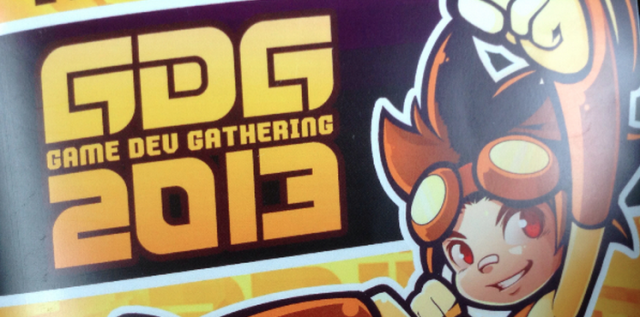Bina Nusantara University Hosted Game Developers Gathering 2013

By Aulia Masna
The fifth Game Developers Gathering was held on Saturday at Bina Nusantara International University on Saturday. Run as a collaboration by some of Indonesia’s major video game development companies, it attracted speakers from around the world and more than 500 attendees. Speakers included representatives from Adobe, Intel, Unity, BlackBerry, Microsoft, MOL, Alegrium, Agate Studio, TouchTen, Ideosource, and more.
Chaired by Kris Antoni, CEO and co-founder of Toge Productions and head of the Jakarta chapter of the International Game Developer Association, GDG2013 drew developers and executives from the country’s game development communities. The annual non-profit event was held to discuss, share, and promote knowledge, experience, and opinions of the Indonesian video game industry and bring the local landscape to the world. According to Antoni, last year the industry’s top game companies earned a combined USD 105 million from game sales, in-app purchases, licensing, and advertising placements.
Antoni admitted that this year’s conference recorded a drop in the number of attendees compared to last year’s event at Universitas Multimedia Nusantara but it’s due to the lack of space available at Binus International and not out of lack of interest. GDG has always been a free event but it requires registration to gauge attendance level and this year, at least a week before the event, they already had to close registrations.
The big change in this year’s event is the separation of the talks into three tracks in three different rooms whereas last year’s event was held as a single track conference. Developers were free to choose between tutorials and workshops, game design sharing, and business and marketing tracks.
These tracks made the event far more practical and easier for game companies and developers to follow as they can allocate representatives to attend the talks far more effectively. Event chairman Kris Antoni said that this change was done for exactly that very reason. While the event was success in 2012, they wanted attendees to be more involved and more focused and separating it into three tracks made the most sense.
As with most conferences, companies had set up booths and tables at the show floor to showcase their latest and most popular games and several even had open recruitments. A number of attendees and speakers had just arrived from Casual Connect in Singapore, another industry conference for game developers which was held earlier in the week, so a number of the talks were similar, but this also means that many of the Indonesian game developers who did not get to go to Casual Connect could catch up by attending the talks at GDG.


